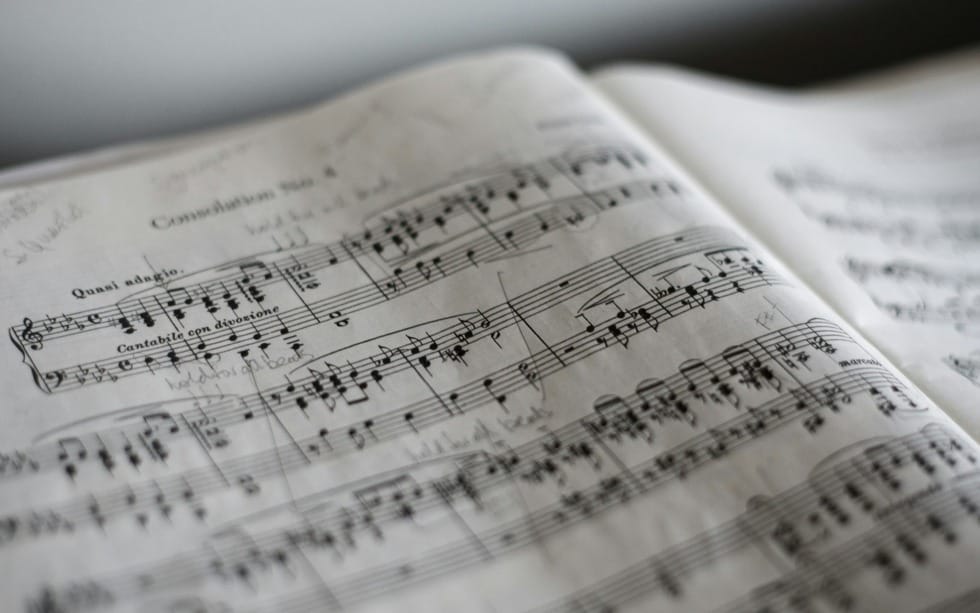Why Music Is a Constant Reminder of the Divine
Why is music so powerful? Here are a few thoughts from Renee Muir.

Have you ever been walking through a grocery store or sitting in a restaurant and your song starts playing over the speakers? Perhaps you're a lyric-library or a dancing queen (even if you aren’t seventeen), but either way, you’re one of those people who just can’t keep your mouth shut or hold still while your song is on.
I am that person. Music is in my bones. I grew up singing and dancing and there wasn’t much you could do to stop me. I began my formal musical training in the third grade and kept on going until I received my Masters in music. Growing up, music was a part of my life at home, in school, at church, and for extracurricular activities; and to this day music motivates me physically, moves me emotionally, and grounds me spiritually.
As a musician, music educator, and closet theologian, I believe music has some very important truths to teach us about being the imago Dei; namely, it informs us about the character of God and our unique existence as his image bearers.
God Has a Playlist?
Many of you may remember the thought-provoking and rather controversial book authored by William P. Young in 2007, The Shack. In it, Young’s main character, Mackenzie, encounters the trinitarian God in a shack in the woods. In one scene, Mack finds God the Father (represented at this point as a large, boisterous black woman) in the kitchen listening to some music with her earbuds in and dancing about while working.
Mack was curious what kind of music God would listen to, and she informs him that it’s like “Eurasian funk and blues with a message and a great beat,” by an unreligious group of guys whom she is especially fond of.
I remember being struck by this description of God: with his [her] earbuds in, bee-boppin’ around the kitchen and just enjoying some good music – even “unchristian” music. Whatever your thoughts on the book, it offers a picture of God responding to music in a way we may have never thought about before. God didn’t just create music: he likes music; and not just hymns –he’s the ultimate eclectic.
Imagine all of the human responses to music: joy, sadness, melancholy, energy, meditation, inspiration. These responses are not original with human beings; they are mirrored. Our responses are reflections of the Original response.
It matters that God enjoys music and is moved by it (2 Chron. 5:13, Zeph. 3:17, Ps. 100:1-2, Ps. 150, Rev. 14:3); and it means something for us as his image bearers. There is something about music that affects us physically, mentally, and emotionally that is special and specific to being human. Our responses to music should be a constant reminder of our existence as the imago Dei.
Birdsong and Beethoven
Did you know that music affects all living things: animals, plants, and even the formation of water crystals!? This is because the universe was created by a God of beauty and order, and that beauty and order are woven into the very fabric of creation. I am not surprised that all living things are affected by music, but what I do find significant is that only human beings can make it.
Some may argue that birdsong is music or that chimpanzees can create a rhythm on a drum. But to those people, I would humbly say, “Then you are not a serious musician or true music enthusiast.”
Music is complex: it’s extremely mathematical and unbelievably magical. It is a physical phenomenon that can create a metaphysical reality. Sure, birdsong can be beautiful and may even “communicate” a message, but it does not compare to the structure, complexity, or creative intent as Beethoven’s Symphony No. 9 or Samuel Barber’s Adagio for Strings. Birdsong and Beethoven are not the same thing; it’s apples and oranges.
Everybody Dance Now!
As God’s crowning glory in creation and his representatives on earth, humans have the distinct capacity to take the raw materials of sound and produce/arrange them in a way that moves the soul and evokes a response – in us and God.
So the next time you find yourself responding to music—whether you are swaying to a song in a restaurant, crushing your reps at the gym while listening to your workout playlist, or shedding a tear at a concert or worship service—be reminded that music is one of the things that marks you as an image bearer of the eternal God. Our ability to make music and respond to it, even Eurasian funk, is a constant reminder of the divine.





